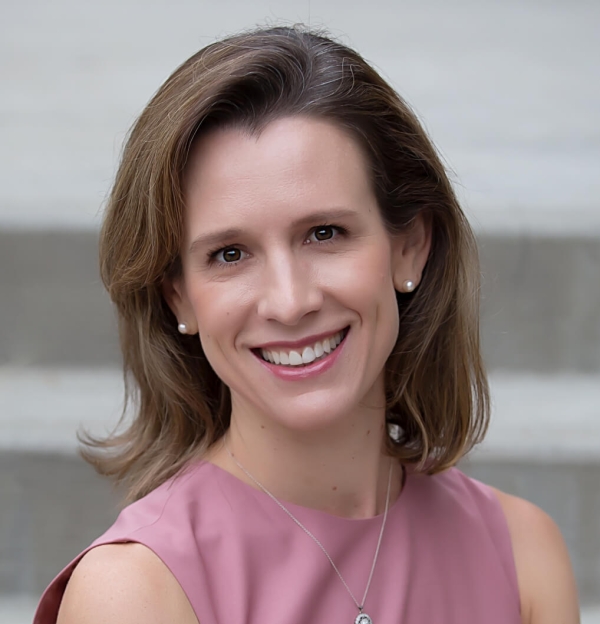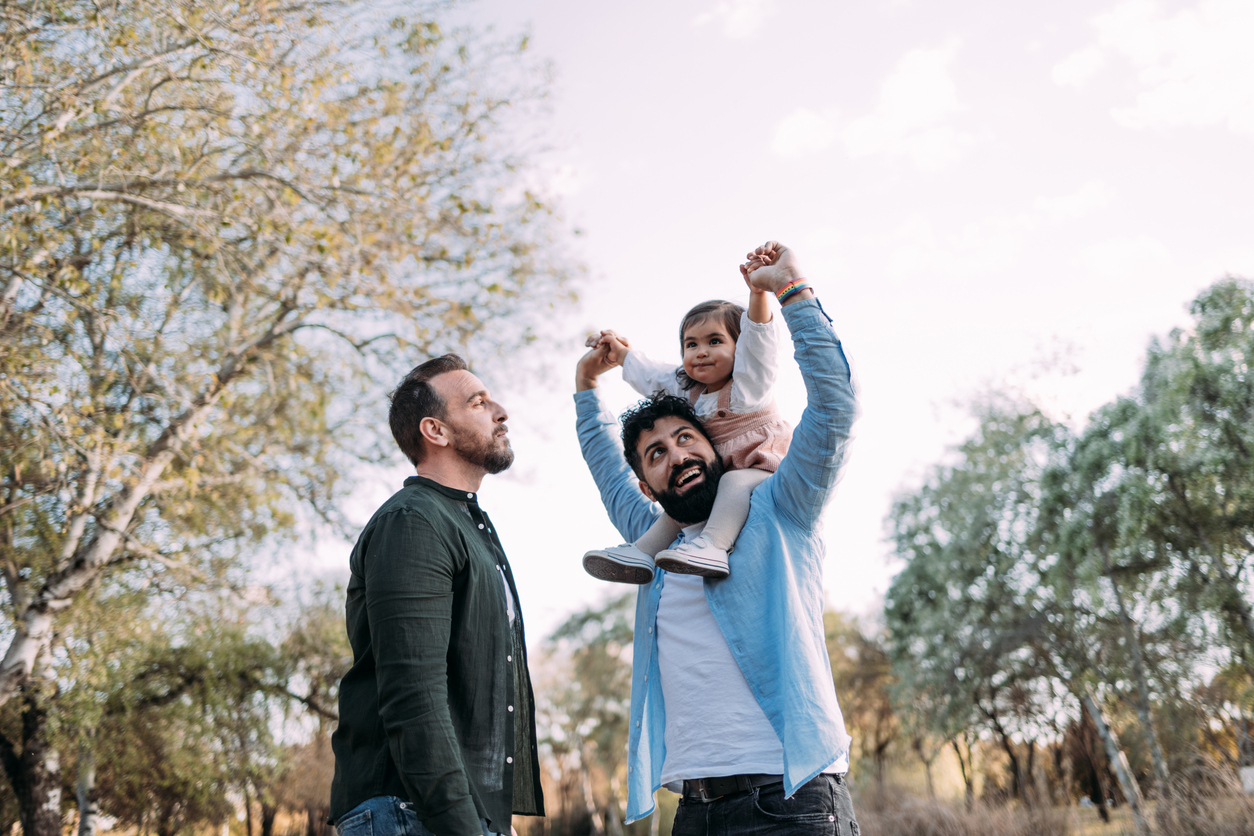Sponsored by Organon. Visit FertilityJourney.com for infertility resources and information.
LGBTQ+ couples navigating family planning and fertility options may face unique questions and circumstances like, “How do we start our family planning journey?” “Are there restrictions against LGBTQ+ partners that may impede our access to care and options?” “Will my doctor understand our specific needs or have a personal bias?”
Through our conversations with those in the (in)fertility community, every couple’s family planning journey and needs are different. For LGBTQ+ couples, additional considerations may be at play. Taking the first step to explore the options available to them may help in deciding what is best and most viable for them and their family.
In an interview with Sara Barton, MD, Double Board-Certified Reproductive Endocrinologist & Infertility Specialist at CCRM Fertility, she noted that “there are a lot of unique concerns and considerations for LGBTQ+ individuals when it comes to family planning. It is critically important to understand all options available as well as the relative success rates.”
A photo of Sara Barton, MD, Reproductive Endocrinologist & Infertility Specialist at CCRM Fertility
Here are some things to consider for LGBTQ+ community members who are navigating their fertility journey, stemming from our conversations with those in the community and insights from Dr. Barton.
Family-Building Options for the LGBTQ+ Community
Follow-Up Searches
According to Dr. Barton, there are several established fertility and family-building options accessible today to LGBTQ+ individuals and couples. And while these options were initially developed for heterosexual couples facing infertility issues, over time, they’ve become more common among the LGBTQ+ community.
-
In-vitro fertilization (IVF): IVF is a well-established form of assisted reproductive technology (ART) in which eggs are removed from a woman's ovaries and fertilized with sperm outside the body in a lab. IVF can be an option for some LGBTQ+ people to consider – particularly same-sex female couples who both want an opportunity to participate in the process, or for couples who want multiple children.
“IVF provides an opportunity to freeze fertilized eggs (embryos) for potential future pregnancies.” That said, Dr. Barton advises that “one important consideration is the age of the couple, especially the person providing the egg. The success rates of fertility treatment are closely tied to the age of the egg in most cases, even in those without a history of infertility.”
Before pursuing these types of ART options, LGBTQ+ individuals and couples should also make sure they research and understand their insurance coverage, which can be challenging for some LGBTQ+ couples and varies depending on the state and employer.
-
Gestational carrier: For LGBTQ+ couples who are not able to carry a pregnancy, notably same-sex male couples, working with a gestational carrier or “surrogate” may be an option to consider. With gestational carriers, a woman will carry and deliver a child for another couple or person but is not genetically related to the child as the sperm and egg used in the IVF process come from other individuals.
It’s important to note that surrogacy laws in the United States vary from state to state. Anyone considering working with a gestational carrier should research their own access prior to pursuing and planning for this option.
-
Intrauterine insemination (IUI): IUI is a procedure in which sperm are inserted directly into a uterus. It is a less invasive procedure than IVF and is commonly used by LGBTQ+ couples to start or add to their family. Dr. Barton explains, “IUI is similar to what is happening in heterosexual sex where sperm is placed close to the ovulated egg shortly before ovulation. This is typically done with some sort of monitoring such as ultrasound or urine/blood testing for ovulation hormones to optimize the timing.”
- Adoption: Adopting a child is another option for LGBTQ+ individuals and couples. Nearly one-quarter of same-sex couples with children have chosen to adopt. Laws governing same-sex adoption also tend to vary from state to state.
With many options available for LBGTQ+ individuals and couples who are looking to build a family, Dr. Barton concludes, “Some treatments are less costly than others, and success rate depends on your health history and/or age. While less costly and less invasive therapies are attractive to patients, they may ultimately take more time and resources than expected. Having a conversation about all the available options and relative success rates is important."
Visit FertilityJourney.com for infertility resources and information.
Seeking Support From Other LGBTQ+ Couples, Communities, and Professionals
It doesn’t just take a village to raise a child, it can take a village to have one. Seeking community or peer support throughout the family planning process may help manage stress, especially when people may face barriers or unique obstacles in trying to create or add to a family as an LGBTQ+ individual or couple. This may involve talking openly with friends who experienced similar fertility obstacles or listening to a podcast with relatable stories.
Support groups that include other LGBTQ+ couples who are working through some of the same family planning challenges may also be a space to connect. Online communities like Rescripted may be a place to start.
Dr. Barton also notes that professional counselors or therapists with expertise in LGBTQ+ family planning can serve to support people’s mental health through the family planning process. “It is part of the American Society of Reproductive Medicine’s guidelines to recommend counseling services for all individuals seeking egg or sperm donation or surrogacy to grow their family. Counseling helps navigate questions about long-term psychological outcomes of donor-conceived children, disclosure to children, open vs closed donation, and limits of anonymity. At my practice, we have in-house counselors to provide services and support for these concerns.”
Finding a Doctor Who Has Experience Working With LGBTQ+ Couples
As LGBTQ+ community members begin their family planning journey, self-advocacy and finding the right care team that can provide compassionate, comprehensive, and high-quality care without bias can make a big difference.
“Finding a provider that is well versed in the FDA guidelines for human tissue donation and has experience with reputable egg and sperm banks, surrogacy agencies, and navigating the legal environment for LBGTQ+ families is valuable,” advises Dr. Barton.
A clinician is a resource to an LGBTQ+ individual or couple considering options. Choosing a clinician is likely one of the first choices people make in their family-building journey.
Family planning is full of learning curves and challenges. For the LGBTQ+ community, there are some added layers and obstacles that need to be considered before starting out. There are options and resources available that may help LGBTQ+ families.
Visit FertilityJourney.com for fertility resources and information.








.jpeg)
.jpeg)
.jpeg)
.jpeg)
.jpeg)
.jpeg)


.webp)










